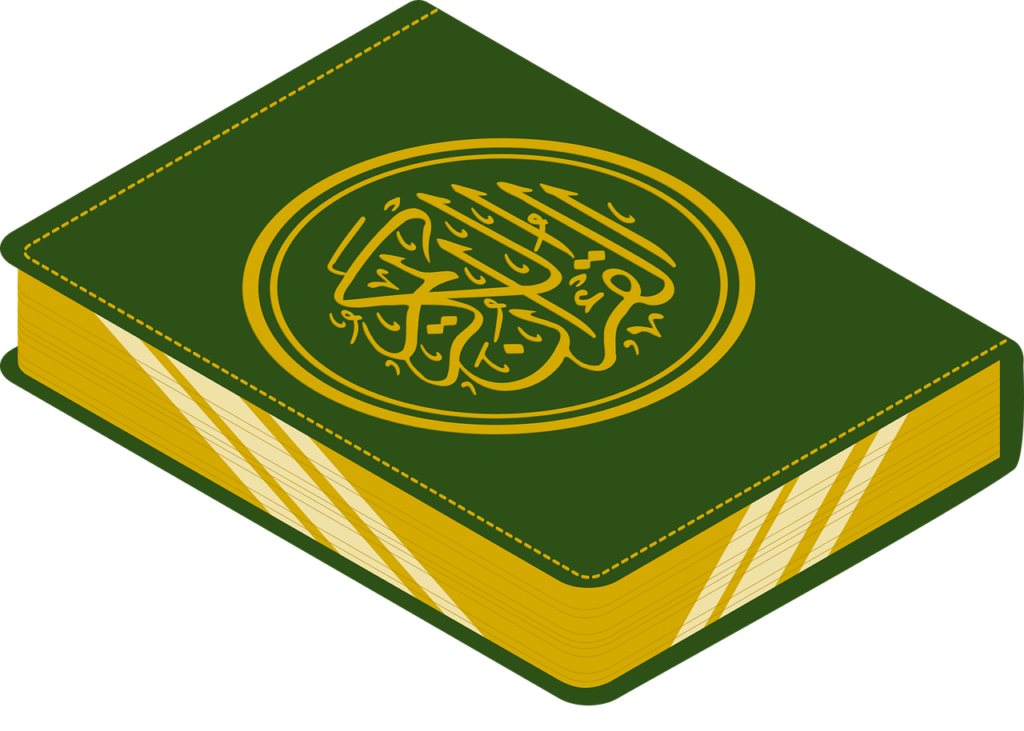Social Media Critic: It’s just not true that you can separate the administration from the philosophy or the theology of Ahmadiyyat, because the administration and the theology make it a point of telling you that you can’t. Over and over, the jamaat tells you that you can’t pick and choose, that either you submit yourself completely to this system or everything within it, or you get out and abandon salvation. The jamaat’s theology is not separate from it’s administration, the theology says that the administration is also divine and must be accepted.
Response: First of all, it is important to understand what the administration is. If it is understood to be simply a body of people like in a company, then you have misunderstood what the system is. The nizam-e-Jama’at refers to our community which is led by the Khalifa of the time. The Khalifa of the time runs the Jama’at and gives instructions to those holding offices. And those holding offices are elected by the members of the Jama’at. When we study the Holy Quran, we learn how to run administrative affairs with taqwa and righteousness. Chapter 24, verses 56 of the Holy Quran explains the purpose of Khilafat and what its role is:
“Allah has promised to those among you who believe and do good works that He will surely make them Successors in the earth, as He made Successors from among those who were before them; and that He will surely establish for them their religion which He has chosen for them; and that He will surely give them in exchange security and peace after their fear: They will worship Me, and they will not associate anything with Me. Then whoso is ungrateful after that, they will be the rebellious”.

Note how this verse elaborates that God will “establish for them their religion”. How is a religion established? It has to come with rules and regulations to be established. Establishing religion does not merely mean offering prayers. Instead, it refers to the entire system. The system sets out to fulfill several objectives of the religion of Islam, including services to humanity through charity walks, blood drives, etc. Without a system, it would be impossible to serve humanity at the scale the Jama’at has done in the past and continues to do.
Moreover, the theology of Ahmadiyyat is in actuality the theology of the true Islam, and the Ahmadiyya administration is in light of that theology. The Ahmadiyya Muslim Jama’at never presents this ultimatum of completely submitting to the administration or abandoning salvation. Salvation is in the hands of God and we, as humans, can never pass judgement on one another based on principles of faith. The Jama’at only emphasizes submission to the will of God and nothing else.
It is also wrong to say that Islamic theology claims that the Ahmadiyya administration is divine. The administration of the Jama’at is based on the belief that the Promised Messiah (as) is the Messiah and Mahdi whose advent was foretold by not only the Holy Prophet (sa) but by other great prophets as well. Let us explore this a little further.
The Promised Messiah (as) came as a fulfillment of the prophecies foretold by the Holy Prophet (sa) that the Messiah and Mahdi would appear in his image to revive Islam. After the demise of the Promised Messiah (as), the institution of Khilafat was divinely established to enable the mission of the Promised Messiah (as) to carry forward. Both the advent of the Promised Messiah (as) and the establishment of Khilafat happened in accordance with the teachings of the Holy Qur’an and in fulfillment of the prophecies of the Hoy Prophet (sa).
In fact, most Muslims believe that the Messiah would be a prophet, and after his demise, a caliphate would be established by the hands of God himself. The Promised Messiah (as) and his successors (the Khulafa of Ahmadiyyat) are the elects of God, and based on this principle, all such schemes and administrative organizations established by these holy personages are a result of divine instruction. The administrative system that oversees all activities in the Jama’at has been established by a prophet of God and then expanded further by the caliphs of that prophet. The structure and outlook of this intricate administrative system is according to direct divine instruction. As such, the members of the Jama’at regard this system with great reverence, with its leader and head – the Khalifa – overseeing all matters.
One common misconception is that some members begin to think that any administrative member’s word is absolute. The administration is made up of members of the Jama’at, and they are all human. As such, it is not our claim that each and every administrators has no flaw whatsoever. It is quite possible that an office bearer may commit an error and the system has safeguards in place to prevent harm to the wider community due to that error.
Hence, it is important to understand that the Jama’at does not have its own unique theology that is separate from the Holy Quran. All the matters within the community are conducted in light of the Holy Quran and the teachings propagated by the Holy Prophet (sa). And based on those teachings, a prophet or a Khalifa are greatly safeguarded by Allah from making such errors that perhaps ordinary administrators could make. The essence of our system is to attach ourselves to the Khalifa and to believe in the true succession of prophethood, which is Khilafat. Khilafat is the soul of our Jama’at. It is not that we are forced to submit to it by the Jama’at itself, but we pledge our obedience to Khilafat in light of Quranic teachings.
Saying that the community presents its members with an ultimatum is in direct contradiction with the Holy Qur’an. Allah clearly states that there is no compulsion in religion. For a Muslim to force another to submit to a belief and threaten with the loss of salvation is absurd and no one in the Ahmadiyya Muslim Community should advocate this. The Jama’at is a system that consists of members who pledge their allegiance willingly. And if a member feels differently about a certain rule, he can leave the community. Leaving the community is never equated with the wrath of God. God Alone knows what is in the hearts of individuals. The community does not claim to know the unseen. However, at the same time, it is our obligation to convey to those deserting members of the true teachings of Islam, and that is that we believe in all the prophets of God and His Caliphs. It is our obligation to present what the Quran states in regard to those who reject the prophets of God, or those who turn away from the truth. The final judgement is in the hands of God. Being a member of this community does not ensure paradise. It is the sincerity of hearts, taqwa (righteousness) and the Grace of God that leads one to paradise.
Further Reading:
https://www.alislam.org/articles/importance-obedience-nizam-e-jamaat/




